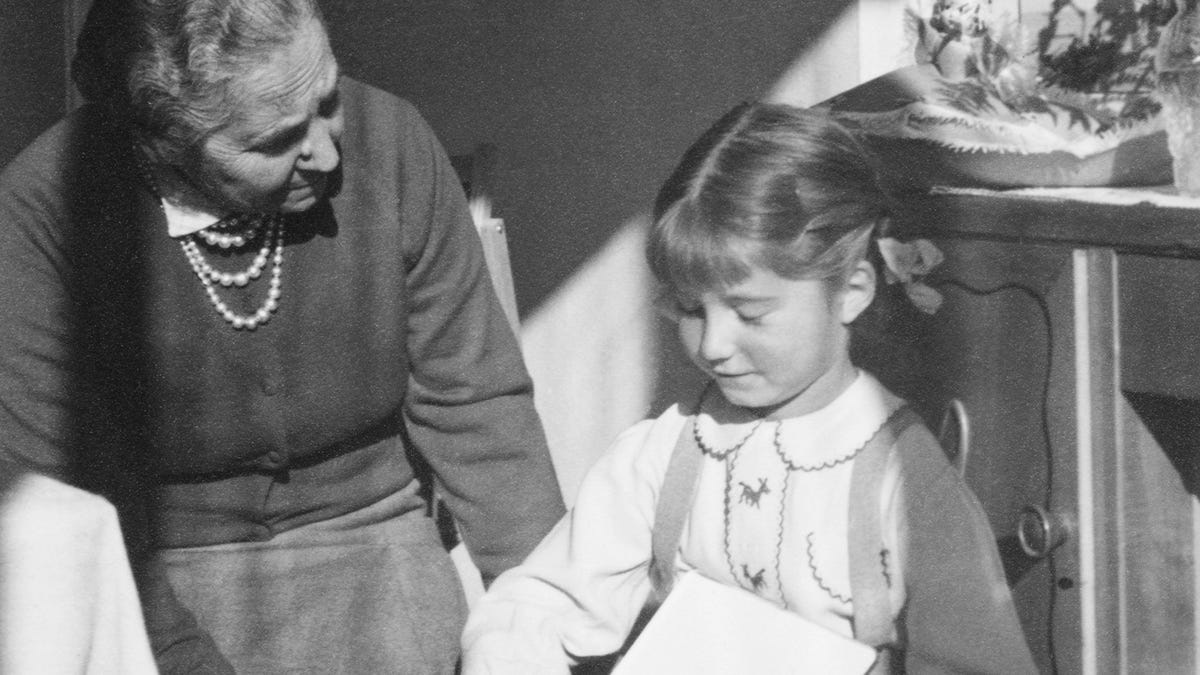How to Cope When Your Parents Become Toxic

I’ll never forget my maternal grandparents confronting my mom about my weight, essentially telling her that her husky family wouldn’t be allowed to sit on her dining room furniture for fear it would bend under our girth. My mother answered by hanging up and my family didn’t speak to them throughout my teenage years.
This incident was the tipping point for the mindless toxic behavior my family endured from my grandparents throughout my childhood, which included pitting relatives against each other, playing favorites, emotional manipulation, and verbal abuse and humiliation. While it seemed unusual that I couldn’t talk to my grandparents during holidays and birthdays, it wasn’t until I became a parent that I realized how their toxic behavior affected my mother.
“It’s tricky with grandparents because we can usually sense when something is unhealthy in a relationship,” explains Stephanie Saari Makadan , a licensed marriage and family therapist and owner of Relationship Renewal Counseling Group. “But if we grow up with it, it may seem familiar and difficult to detect. There are already negative dynamics. But there may also be mental health issues that affect behavior.”
What can parents do if their child’s grandparents exhibit toxic behavior? Before you end the relationship, we’ll look at how you can deal with their behavior.
Share your feelings with your partner
We’re guessing that, thanks to their years of experience raising you or your partner, grandparents are always right, or at least know enough to give them the benefit of the doubt. However, emotional blind spots may make it difficult for you or your partner to notice when something feels wrong or may be hurtful or manipulative.
Share with each other what you notice, but if you’re concerned that family bias may be at play, Macadaan recommends asking for feedback from people close to you to gain more clarity on the situation. Consider talking to a professional.
“A therapist can help you understand the dynamics and have a more neutral perspective than a spouse or other family member might,” she says. “It helps you understand what’s going on and untangle a lot of conflicting feelings.”
Calmly set boundaries
When you were growing up, your parents probably told you that if you lived in their house, you had to follow their rules. Now that you are grown up, they need to follow your rules in your home with the children. These boundaries range from talking about politics to watching certain programs or how many treats they can give your children. Whatever you install, make sure it’s strong, clear and in place, Makadan says.
“If we try to set boundaries in a reactive way, with a lot of anger, they can often be easily ignored,” she says. “Most people like to push boundaries. The clearer you are, the easier it will be to hold the line when they try to retreat from it.”
Set yourself up for success during unexpected visits
Sometimes grandparents like to drop by unexpectedly, embarrassing you and your partner and causing a lot of unnecessary worry. Make a plan for these moments and clearly communicate it to unexpected visitors.
“I always encourage people to be a little ahead,” says Makadaan. “This may mean setting time limits on how much time you are going to spend together or meeting in a setting that is most comfortable for you [for your next visit]. The more tired and exhausted we become about what is happening, the more difficult it is to maintain boundaries.”
Be quiet on the radio
You set boundaries and make a plan, but no matter what you do, feelings of anxiety, anger, and depression continue to surface every time your child’s grandparents come to visit. Unfortunately, McAdan says, the next step may be limiting contact or ending the relationship.
“It may be that the relationship becomes too toxic to even allow limited contact,” she says. “I think we need to work on it because leaving a relationship is not easy. “It creates a whole different set of feelings, like loss and grief.”
Accept and forgive
As I said at the beginning of the article, I missed my relationship with my grandparents in my younger years. But eventually the relationship was patched up and we had a good relationship for most of my adult life. When you’re ready to bury the hatchet, Makadaan suggests taking things one step at a time.
She warns, “Otherwise, we can easily recreate these old dynamics instead of starting all over again.”